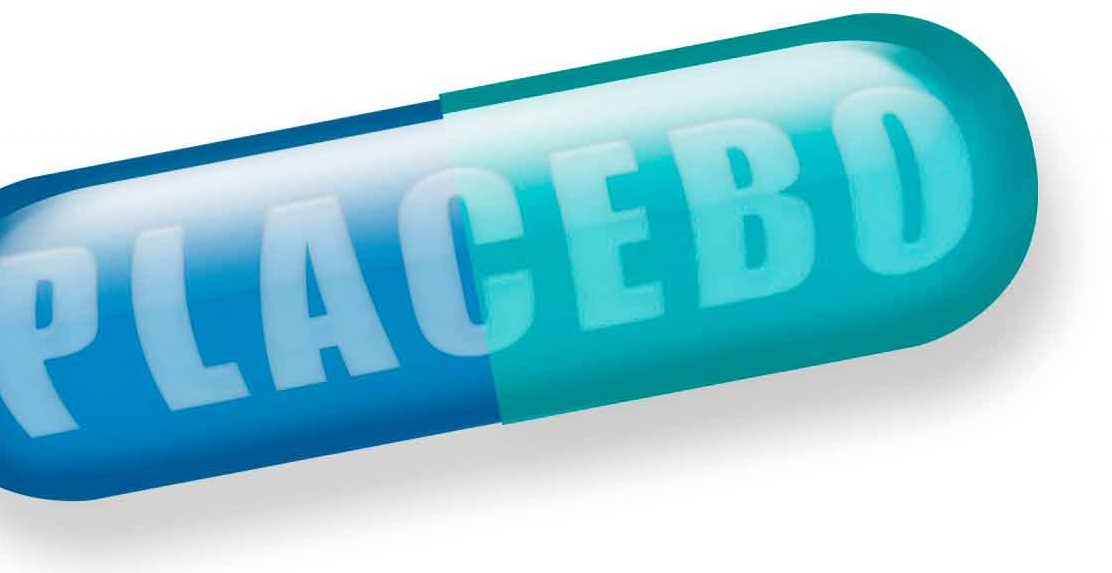The Mysterious Power of Placebos

Sugar pills can be effective treatments. In fact, people may see symptoms fade even when they know a pill is inactive. Here's what you should know.
If you think a pill will stop your headache, it can, even if there’s nothing in the pill but some sugar. Our ability to recover simply because of expectations is called the placebo effect. A pill can inspire the placebo effect, and so can a drink, injection, or a treatment like acupuncture or chiropractic.
Often this effect doesn’t last, so patients need a better alternative. But scientists are learning that the placebo response is more powerful than they thought.
YOU MIGHT ALSO LIKE: Should You Take Antidepressants? It’s Complicated
The placebo effect in research
When scientists test drugs to see how well they work, they compare the outcome with volunteers taking the medications against that of another group taking placebos, called a control group. The gold standard is a double-blind study, in which neither research subjects nor the researchers know who is taking the active drug and who is receiving the inert version. In theory, these trials allow us to determine how much of any improvement arises from the active substance, removing the placebo effect.
But as U.S. drug studies have grown larger and longer, that system hasn’t worked as well. When McGill University scientists analyzed 84 clinical studies of drugs for pain relief, they discovered that volunteers in the more recent studies were more likely to report relief from placebo — on average about a 30 percent reduction in pain.
Because that wasn’t true outside the U.S., the researchers looked for unique features of the American drug market. One stands out: Americans are exposed to advertising for drugs, which is allowed in only one other country, New Zealand.
There has also been a trend of growing effectiveness in placebos in studies of antidepressants and antipsychotic drugs.
That doesn’t mean people don’t need to take real drugs.
“Placebos may make you feel better, but they will not cure you,” says Ted Kaptchuk, MD, director of the Program in Placebo Studies and the Therapeutic Encounter at Harvard University and Beth Israel Deaconess Medical Center.
In many cases, real medicine will cure you. Also, placebos don’t seem to work as well for all people or for all conditions. So far, they appear to be most effective for pain, including irritable bowel syndrome (IBS) and migraine, as well as stress-related insomnia and cancer side effects like fatigue and nausea.
IBS, which may affect as much as 15 percent of the U.S. population, is hard to treat. But nearly 40 percent of patients react well to placebos. That’s true even if they know they’re getting a sugar pill.
In one of Kaptchuk’s studies, patients who knew they were taking a placebo reported twice as much improvement, including relief from bloating, painful cramps, and diarrhea, than the untreated patients in the control group. Some patients asked for more fake pills, the study noted. Kaptchuk has also reported success with placebos for treating depression.
Doctors already give prescriptions simply to trigger a placebo effect without telling patients. In one survey in the United Kingdom, 77 percent of doctors reported doing so.
A type of study uses what are called open-label placebos — in which, as in Kaptchuk’s work, the patients know they are receiving placebos. One overview found that open-label placebos were effective in tests related to back pain, attention deficit hyperactivity disorder (ADHD), allergic rhinitis, and menopausal hot flushes, as well as cancer-related fatigue and IBS.
Not everyone benefits. The impact of placebos varies from one person to the next. That may be a genetic trait. The Harvard program found that a particular gene variation makes people more sensitive to IBS pain. Those same people were more likely to find relief from a fake acupuncture treatment.
At the University of Alabama in Birmingham, researchers explored the impact of the same gene on cancer-related fatigue and concluded that it promoted relief in response to an open-label placebo. The gene provides instructions to brain nerve cells to produce a particular enzyme.
Neuroscientists have begun to look in more detail into how the brain operates to produce beneficial responses to a placebo. Doctors and patients know that when sick people hear — “This is going to make you feel better.” — and trust the speaker, they are more likely to have a good response than if they aren’t reassured or don’t believe what they hear.
There is some debate about whether placebos work in people who have Alzheimer’s disease. The disease impairs the prefrontal cortex, which is associated with thinking, behavior, and emotions, and people with the condition may be unable to develop expectations when they take a pill. The Alzheimer’s Association, however, argues that tests of drugs for this condition should include a placebo group, as with all tests.
Updated:
May 02, 2023
Reviewed By:
Christopher Nystuen, MD, MBA and Janet O'Dell, RN